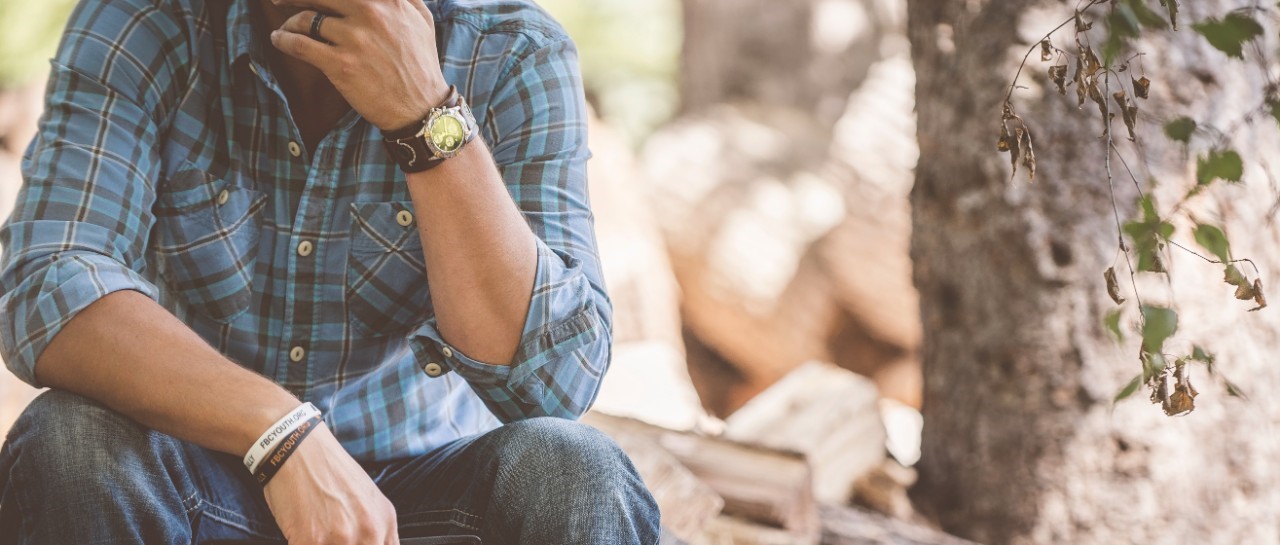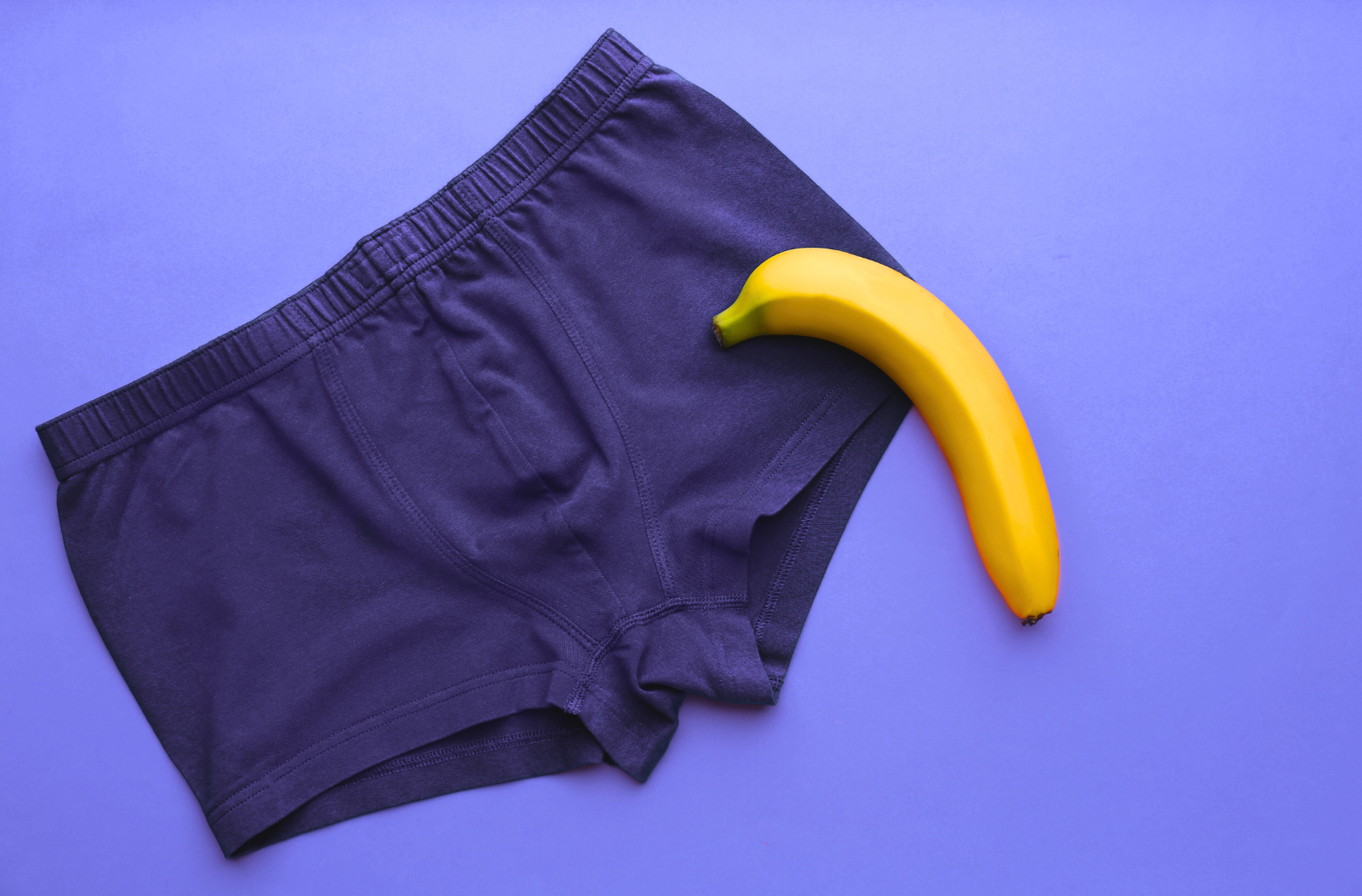
What it's like to have breast cancer when you're a man
Peer reviewed by Dr Sarah Jarvis MBE, FRCGPLast updated by Abi MillarLast updated 27 Sept 2019
Meets Patient’s editorial guidelines
- DownloadDownload
- Share
- Language
- Discussion
While breast cancer is often perceived as a women's disease, men can be diagnosed too. We spoke to Tony Herbert, who was diagnosed with breast cancer in 2011.
In this article:
Video picks for General men's health
In August 2010, Tony Herbert was on a safari holiday in Namibia when he felt a soreness in his nipple. Putting it down to a chafing seatbelt, he didn't think anything of it, but the pain persisted when he got home. By October, there was a lump under his nipple, which grew to be around an inch in diameter.
"I could feel it easily but I didn't do anything about it," he recalls. "In January 2011, I was sitting on the settee when my wife prodded me in the chest. She said I should go to the doctor and get it looked at. So essentially I spent five months without doing anything, assuming it must be a cyst."
While his GP agreed it was probably nothing serious, he referred Herbert to a breast clinic as a precaution. This decision could well have saved Herbert's life.
"When the GP at the breast clinic examined me, I could see by her face that it was breast cancer," says Herbert. "I was referred for a biopsy and we got the results on the Tuesday. The surgeon operated on the Friday."
Continue reading below
What breast cancer looks like in men
While breast cancer is often considered a women's disease, men can develop the condition too. And while the prevalence is much lower - 370 men are diagnosed each year in the UK, compared to around 62,000 women - it's just as important for men to be aware of any changes in their body.
As Catherine Priestley, a clinical nurse specialist at Breast Cancer Care, explains, the symptoms in men tend to resemble the symptoms in women. The only caveat is that, since men have less breast tissue, any lumps will likely be centred behind the nipple.
"They might find some discharge, the nipple might become rather tender and inverted, there might be some ulceration or soreness, or just a swelling of the breast or chest area," she says. "Although some men might find a lump under their arm or towards their collarbone, more often than not it's a lump around the nipple area that's the first thing that's brought to their attention."
In men, as in women, the causes of breast cancer aren't fully understood. However, there are certain risk factors that may make a diagnosis more likely. These include being aged over 60, previous radiotherapy to the chest, or unusually high oestrogen levels (which can be caused by long-term liver damage or obesity).
Genetic risk factors
Back to contentsAnother major factor is family history. If a number of your relatives have dealt with breast cancer, you might have inherited a genetic mutation (eg in the BRCA1 or BRCA2 gene) that raises your own risk too. (It's worth mentioning that a man with a BRCA mutation is still less likely to develop breast cancer than the average woman, but their risk is around ten times higher than that of the average man.)
"Sometimes you'll find that men have daughters who've had breast cancer," says Priestley. "So if there have been multiple people in the family diagnosed, especially other men or younger women, that can come into play as well."
In Herbert's case, his sister had been diagnosed in 2008, and genetic testing confirmed that they both have an altered BRCA2 gene. Herbert says this prompted a lot of heartache, especially since his two children have a 50% risk of carrying the same gene fault. Unfortunately, it also increases the risk of aggressive prostate cancer in men, and Herbert has subsequently dealt with prostate cancer too.
"It's something you have to face up to really, but the biggest thing is getting diagnosed early," he says. "Men with the altered BRCA2 gene need to get the PSA test as often as they can."
Continue reading below
The psychological implications
Back to contentsHerbert's breast cancer treatment involved a mastectomy, followed by 18 weeks of chemotherapy, a lymph node clearance and three weeks of radiotherapy. Medically speaking, there is little difference between what men and women go through here, but he thinks the psychological burden is slightly different.
"The mastectomy is a big thing for a lady because it changes her body shape, but as a man the only time anyone would notice is when you go swimming," he says. "And then with the chemotherapy, hair loss is a big thing with ladies but I haven't got much hair anyway. The other bonus is I didn't have to shave."
While Herbert is good-humoured about the body image aspect (which, of course, affects everybody differently), he did struggle with the sense of isolation.
"When I had the mastectomy, I was in a room of my own because all the others were ladies," he says. "My sister is still friends with most of the people who were having a mastectomy at the same time as her, but I never spoke to anyone about it."
Compounding the issue, he found that every time he turned up for an appointment, the health services would assume it was his wife who was getting treated. Then there were other irritants, like the invitations to mammograms that encouraged him to wear a blouse.
It wasn't until 2014, taking part in the Breast Cancer Care fashion show, that he met another man in the same situation.
"There were two men taking part, Clive and myself, and Clive was the first man I'd spoken to who had breast cancer," he says. "It's helpful speaking to a lady but it's not the same as speaking to another guy."
Where to find support
Back to contentsIt was for this reason that Herbert decided to volunteer for Breast Cancer Care and Breast Cancer Now’s Someone Like Me service, which matches volunteers with people seeking support. Through this service, he has spoken to a number of men with breast cancer, who might otherwise feel very alone.
Priestley points out that all of Breast Cancer Care's services are open to men as well as women, and that anybody affected by breast cancer can call the helpline free on 0808 800 6000 for information and support.
"We do get men ringing us asking questions about their breast health, so we're always there for anyone who wants to ask questions and talk through concerns," she says. "We have some information specifically tailored to men on our website, and we also have moving forward services for people who've got to the end of their treatment - I know we've had men attend that in the past. None of our services are exclusive to women."
Today, Herbert is fit and healthy. And as well as helping other men with breast cancer, he's looking to raise more awareness around the disease.
"Men don't like to go to the doctor anyway, but there's an added problem with something like this because they see it as a ladies' disease," he says. "I would say to all men that they should feel their breasts and make sure they haven't got any lumps or soreness, and if they do find anything then go to the doctor. And I think when people are talking about breast cancer they could say men and women with breast cancer, not just women, because men can get it too."
Patient picks for General men's health

Men's health
Are testosterone supplements safe for men?
Testosterone supplements can have a hugely positive effect on the lives of men who have a medical need. Whether as a treatment for female-to-male gender-affirming hormone therapy or for testosterone deficiency, there are numerous mental and physical health benefits. As with any medication, it's important to be aware of the possible adverse effects of treatment. There are also crucial safety parameters in place to protect against health complications.
by Amberley Davis

Men's health
9 signs of low testosterone in men
If you’ve been feeling unusually tired, moody, or losing interest in things you used to enjoy, low testosterone could be the reason - and it's more common than you think.
by Heather Ainsworth
Continue reading below
Article history
The information on this page is peer reviewed by qualified clinicians.
27 Sept 2019 | Latest version

Ask, share, connect.
Browse discussions, ask questions, and share experiences across hundreds of health topics.

Feeling unwell?
Assess your symptoms online for free
Sign up to the Patient newsletter
Your weekly dose of clear, trustworthy health advice - written to help you feel informed, confident and in control.
By subscribing you accept our Privacy Policy. You can unsubscribe at any time. We never sell your data.